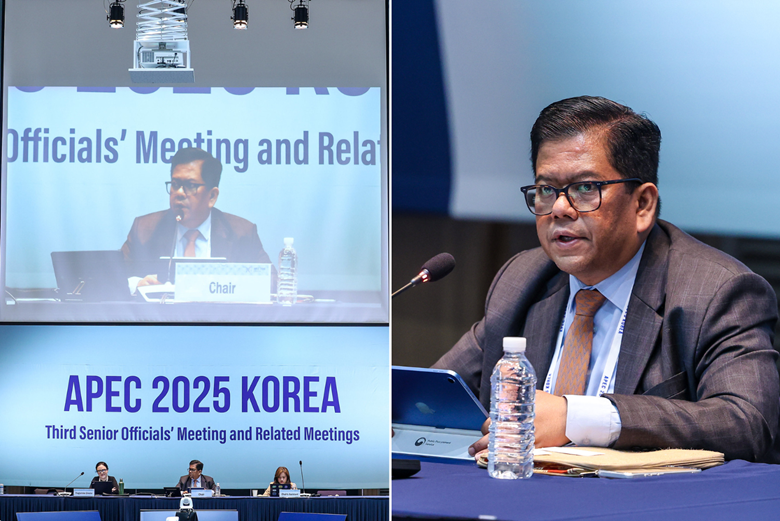
APEC member economies have concluded a two-day meeting of the Digital Economy Steering Group in Incheon, Republic of Korea, with renewed momentum to strengthen cross-border collaboration on digital regulation, online safety and sustainability.
Against a backdrop of rapid technological change and growing digital interdependence, officials from across the Asia-Pacific convened to chart practical, people-centered approaches to the digital economy. From artificial intelligence (AI) to online scams and environmental impact, the meeting focused on the critical balance between enabling innovation and safeguarding users, particularly vulnerable groups such as women, youth, as well as small businesses.
"There is growing recognition that growth in the digital economy must go hand in hand with trust, inclusion and responsibility," said Ichwan Makmur Nasution, Chair of the Digital Economy Steering Group (DESG). "The solutions we're exploring are not only about technology. They're about protecting people, building resilience and ensuring no one is left behind."
Throughout the meeting, delegates grappled with how to align digital regulations across borders without stifling innovation. Conversations around data privacy, cybersecurity and AI governance reflected the diversity of legal systems and policy approaches in the region, while underscoring a shared urgency to create interoperable, forward-looking digital frameworks.
One of the central policy dialogues examined how economies can better manage harmful online content, misinformation and abuse. These issues threaten not only individual safety but also social trust and economic participation. The discussion highlighted the disproportionate impact of online harms on women and youth, urging greater investment in digital literacy, user protection and responsible platform governance.
The rising concerns around online fraud, scams and the misuse of generative AI. Economies shared strategies for detection and enforcement, as well as efforts to strengthen digital trust through public-private partnerships and international cooperation. Delegates emphasized that no single economy can tackle these transnational threats alone.
As part of its forward agenda, the group examined the environmental footprint of AI and digital infrastructure. From growing energy demands to electronic waste, members explored how policy and innovation can work together to reduce the sector's impact while supporting continued digital growth. Members and industry representatives presented on energy-efficient technologies, sustainable data centers and life-cycle approaches to digital hardware.
Ongoing and proposed APEC-funded projects covered a wide range of priorities, from AI policy cooperation and Privacy Enhancing Technologies (PETs) to micro, small and medium enterprises' access to digital trade.
"This meeting reinforced the strategic value of DESG as a platform for shared learning and joint action," said Nasution. "It's not just about exchanging views. It's about building alignment where possible and respecting diversity where needed, so that our cooperation continues to deliver real value to people across the APEC region."
Held under the APEC 2025 theme "Building a Sustainable Tomorrow," the DESG meeting was part of the broader Third Senior Officials' Meeting (SOM3) hosted by Korea. During this meeting cluster, there will be over 30 events related to digital innovation, including at the upcoming APEC Digital Ministerial Meeting and the Global Digital and AI Forum to be held on 4-5 August.






